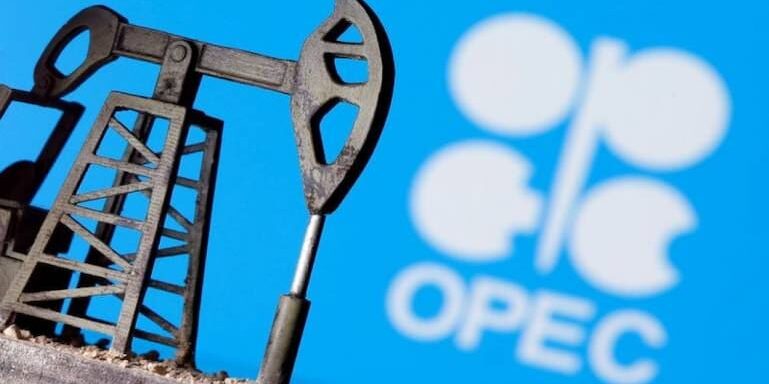Nigeria is preparing to lobby the Organisation of Petroleum Exporting Countries (OPEC) for a higher oil production quota as the country recovers from years of declining crude output.
Gbenga Komolafe, the chief executive of the Nigeria Upstream Petroleum Regulatory Commission (NUPRC), stated that the country aims to boost production to meet budgetary targets before formally requesting an adjustment in its OPEC quota.
“Nigeria’s priority is to ramp up production to align with its budget goals before approaching OPEC for a quota increase,” Komolafe explained.
In December 2024, Nigeria’s crude oil production reached 1.48 million barrels per day (bpd), just below its OPEC assigned quota of 1.5 million bpd.
This marks a significant recovery from 2022, when output dropped to just 1.1 million bpd due to widespread theft and pipeline vandalism.
The government’s efforts to enhance security and attract investment have played a key role in reversing the decline. Officials are now projecting production will reach 2 million bpd, the highest level in a decade.
In 2022, rampant theft and sabotage severely impacted key infrastructure, including the Trans-Niger Pipeline, where criminals illegally tapped over 150 points. This led to oil producers receiving only a fraction of the crude transported through the pipeline.
To address these issues, the Nigerian National Petroleum Company (NNPC) has introduced initiatives such as a real-time production monitoring center and partnerships with local communities to protect pipelines.
“These strategies are showing positive results, though at a high financial cost,” said Ifeanyi Onyegiri, a senior analyst at Welligence.
Analysts believe that if Nigeria sustains these improvements, it will have a stronger case for securing a higher OPEC quota.
However, maintaining security across Nigeria’s extensive Niger Delta pipeline network remains a significant challenge. “The biggest hurdle is ensuring long-term protection against vandalism,” stated Pranav Joshi, an analyst at Rystad Energy.
Local oil companies, such as Seplat Energy and Oando, have also played a key role in Nigeria’s recovery. Seplat is planning to more than double its production to 120,000 bpd following its acquisition of ExxonMobil’s offshore assets. Similarly, Oando is aiming to increase its output to 100,000 bpd in the near future.
Komolafe pointed out that drilling activity has tripled over the past four years, reflecting growing confidence in the sector.
However, Nigeria’s goal of surpassing 2 million bpd may create tension with OPEC, which enforces production limits to stabilize global oil prices.
Recent developments within OPEC have sent mixed signals. While Angola left the cartel in 2023 after rejecting stricter output controls, the United Arab Emirates successfully negotiated a higher quota in 2024, citing its expanded production capacity.
Given Nigeria’s pressing fiscal needs, analysts suggest the government may prioritize increased production over strict compliance with OPEC restrictions.
“Nigeria’s current financial situation makes exceeding its OPEC quota highly tempting, as additional revenue could help reduce the budget deficit,” explained Dipo Ogunbiyi, an energy analyst at Renaissance Capital Africa.
![]()




